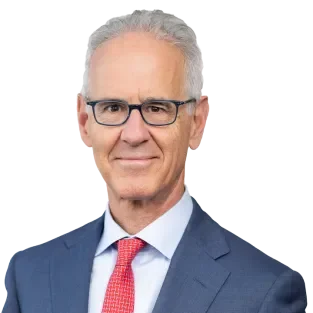External Publication
Supreme Court Grants Lawyers Whistleblower Protection
The right of New York lawyers to sue their law firm or company employer for wrongful dismissal as a whistleblower has been quite limited—until now.
Last week, in Lawson v. FMR LLC (http://www.supremecourt.gov/opinions/13pdf/12-3_4f57.pdf),1 the U.S. Supreme Court ruled in favor of granting broad whistleblower rights, under the Sarbanes-Oxley Act of 2002, to lawyers, accountants, investment advisers—and indeed, any other individual who is employed by a third party to provide services to a publicly traded company.
The decision specifically focuses on lawyers and accountants—the Supreme Court noted that the fraud perpetrated by Enron (which provided Congress with the impetus to pass Sarbanes-Oxley) succeeded in large part due to a “corporate code of silence” that discouraged employees of Enron and Arthur Andersen (its accounting firm) from reporting the misconduct.
“Legions of accountants and lawyers would be denied [Sarbanes-Oxley's whistleblower] protections,” the court ruled, if Sarbanes-Oxley were not read to provide this remedy. Thus, it is not hyperbole to describe the decision as providing a sweeping new remedy for lawyers and accountants.
But the Supreme Court’s full-throated endorsement of lawyers bringing these claims makes no mention of issues of confidentiality and privilege, and to some degree seems at odds with the discomfort reflected by the New York courts, as well as the Professional Ethics Committee of the New York County Lawyers’ Association (NYCLA). That committee recently opined that New York lawyers may not ethically collect whistleblower bounties authorized by the Dodd-Frank Wall Street Reform and Consumer Protection Act of 2010.
Limits on the Decision
Let’s make clear what the court held, and the boundaries (so far as they can be determined) on Sarbanes-Oxley whistleblower remedies.
The law prohibits a public company, “or any officer, employee, contractor, subcontractor, or agent of such company,” from discharging, demoting, suspending, threatening, harassing or in any other manner discriminating against “an employee” in the terms and conditions of employment, because of whistleblowing or other protected activity.
The battle in Lawson was over the words “an employee”—is potential whistleblower status limited to an employee of publicly traded companies, or is an employee of an “officer, employee, contractor, subcontractor, or agent of such company” also protected by Sarbanes-Oxley’s prohibition against retaliation? The court ruled that the logical reading of the statute compels including all employees of these entities.
What is a protected communication? In Platone v. FLYi,2 the Department of Labor’s Administrative Review Board (which issues final Labor Department decisions of Sarbanes-Oxley whistleblower claims) held that a protected communication must “definitively and specifically” relate to a violation or rule listed in Section 806 of Sarbanes-Oxley. Those enumerated provisions are mail fraud, wire fraud, bank fraud, securities fraud, any rule or regulation of the SEC, or any provision of federal law relating to fraud against shareholders.3
However, in 2011, the ARB reversed Platone, overruling that case’s “definitive and specific” standard in favor of a “reasonable belief” standard, in Sylvester v. Parexel Int’l.4 Under this standard, a plaintiff need not specifically allege that the defendant’s conduct constitutes fraud against shareholders. Instead, a showing that she “reasonably believed” the defendant’s conduct violated any other of the enumerated statutes is enough to permit her claims to survive.
It is unclear whether New York courts will abide the ARB’s pre-Parexel or post-Parexel view of the matter.5
Remedies in New York
Employees asserting whistleblower rights in New York historically have had a rough go of it. New York, of course, is an employment-at- will state, and goes farther than many others—we do not recognize a cause of action for dismissal in violation of public policy, except in the narrowest of circumstances.
Thus, in 1983, in Murphy v. American Home Products, the Court of Appeals rejected a public policy exception to the at-will rule where the employee was discharged after “his disclosure to top management of alleged accounting improprieties” amounting to more than “$50 million in illegal account manipulations of secret pension reserves which improperly inflated the company’s growth in income and allowed high-ranking officers to reap unwarranted bonuses from a management incentive plan on the part of corporate personnel.” 6
The court found that “whether…employers should, as a matter of policy, be held liable to at-will employees discharged in circumstances for which no liability has existed at common law, [is] better left to resolution at the hands of the Legislature.”
Also, New York’s statutory whistleblower law, Section 740 of the New York Labor Law, protects from retaliation only those individuals who complain about violations that endanger public health or safety.7
Lawyers as Whistleblowers
Before Lawson, New York lawyers have on occasion tried, but mostly failed, to be recognized as whistleblowers. The one notable exception is reflected in the New York Court of Appeals’ decision in Wieder v. Skala.8 There, a law firm attorney complained to the Appellate Division Disciplinary Committee about admitted acts of legal malpractice and fraud and deceit, and alleged that he was retaliated against as a result of his complaints. The court ruled that the plaintiff’s duty to report misconduct as provided by the New York Disciplinary Rules protected him against retaliation.
Client Confidences
Of course, the specter of lawyers bringing whistleblower claims raises deep concerns about how this might conflict with their duty to preserve client confidences.
Anticipating this issue, the Professional Ethics Committee of NYCLA opined this past October (http://www.nycla.org/siteFiles/Publications/Publications1647_0.pdf) that New York lawyers may not ethically collect whistleblower bounties provided by Dodd-Frank.9 The committee concluded that disclosure of confidential information “in order to collect a whistleblower bounty is unlikely, in most instances, to be ethically justifiable.”
But nothing in the committee’s ruling suggests that attorneys may not bring claims of unlawful retaliation if they believe that their employer—whether it is the publicly traded company or the law firm representing the company—has retaliated against them for blowing the whistle on unlawful conduct.
All states have adopted ethical rules limiting an attorney’s ability to reveal client confidences. ABA Model Rule of Professional Conduct 1.6 permits disclosure of client information if the disclosure is necessary “to establish a claim or defense on behalf of the lawyer in a controversy between the lawyer and the client.” The ABA has issued a formal ethics opinion finding that a wrongful termination claim is a “claim” within the meaning of Model Rule 1.6.
Courts in states that have adopted the precise language of Model Rule 1.6 have held that, because of this exception, the ethical rule regarding disclosure of confidential information is not violated even if disclosure of client confidences is necessary to bring the whistleblower claim.
New York’s ethical rules regarding the disclosure of client confidences, however, are more restrictive. In New York, the ethical rule is violated if such confidences are disclosed by in-house counsel in the course of litigating a whistleblower claim, unless in-house counsel can show that some other exception applies, such as the crime-fraud exception.10 As the First Department held in Wise v. Consolidated Edison, “the ethical obligation to maintain the confidences and secrets of clients and former clients is broader than the attorney-client privilege, and exists without regard to the nature or source of information or the fact that others share the knowledge.”
In addition to enacting Model Rule 1.6, which opened the door to disclosure of confidential information in wrongful discharge cases brought by in-house attorneys, the ABA has issued Formal ethics opinion 01-424, titled “A Former in-House Lawyer May Pursue a Wrongful discharge Claim Against Her Former employer and Client As Long As Client information Properly is Protected.”
The opinion describes a recent trend of courts allowing wrongful discharge claims by in-house counsel and explains that there is a basis for allowing such claims under the ABA Model Rules. The opinion adds that attorneys must, however, “limit disclosure of confidential client information to the extent reasonably possible.”
Conclusion
Lawson will undoubtedly open the door to many more whistleblower claims by counsel, whether in-house or employed by law firms that represent publicly traded companies. It is therefore essential for law firms and accounting firms to review their internal compliance procedures. They must implement policies encouraging (and indeed requiring) employees to report internally their concerns about allegedly unethical conduct, establish procedures for investigating thoroughly any such claims, and prohibit retaliation against any employee for bringing these matters to the attention of appropriate recipients of these claims.
By the same measure, law firms must review their internal guidelines for safeguarding client confidences, and to promptly take steps to protect those confidences in the event of a disclosure or threatened disclosure, whether in the context of a whistleblower claim or otherwise.
Philip M. Berkowitz is a partner and U.S. co-chair of Littler Mendelson’s international law practice.
Endnotes:
1. 2014 U.S. LEXIS 1783 (March 4, 2014).
2. ARB 04-154, 2006 DOLSOX LEXIS 105 (Dept. of Labor Sept. 29, 2006), aff’d, 548 F.3d 322 (4th Cir. 2008).
3. 18 U.S.C. 1514A.
4. 2011 DOLSOX LEXIS 39 (Dept. of Labor May 25, 2011).
5. Compare Sharkey v. JPMorgan Chase & Co., 805 F.Supp.2d 45, 56-57 (S.D.N.Y. Aug. 19, 2011) with Sharkey v. JPMorgan Chase & Co., 2013 U.S. Dist. LEXIS 183168 (S.D.N.Y. Dec. 12, 2013) (accepting, in the former decision, Parexel-style reasoning, but in the second decision seeming to hone to Platone).
6. Murphy v. Am. Home Prods., 58 N.Y.2d 293, (1983). Accord Sabetay v. Sterling Drug, Inc., 69 N.Y.2d 329, 336 (1987).
7. See Remba v. Fed’n Emp’t & Guidance Serv., 545 N.Y.S.2d 140 (N.Y. App. Div. 1989), aff’d, 559 N.E.2d 655 (N.Y. 1990). Also, New York Labor Law Section 741 protects employees of health care providers from retaliation against complaints of what the employee reasonably believes constitutes improper quality of patient care.
8. 80 N.Y.2d 628 (1992).
9. “Ethical Conflicts Caused by Lawyers as Whistleblowers under the Dodd-Frank Wall Street Reform Act of 2010,” NYCLA Ethics Opinion 746.
10. See, e.g., Wise v. Consolidated Edison Co., 282 A.D.2d 335, 723 N.Y.S.2d 462 (1st Dept.), app. denied, 96 N.Y.2d 717, 756 N.E.2d 78 (N.Y. 2001).
Philip M. Berkowitz is a shareholder and U.S. co-chair of Littler’s International Law Practice Group. He is based in the firm’s New York City office. This article is reprinted with permission from the March 13, 2014 issue of the New York Law Journal. © ALM Media Properties, LLC. Further duplication without permission is prohibited. All rights reserved.

